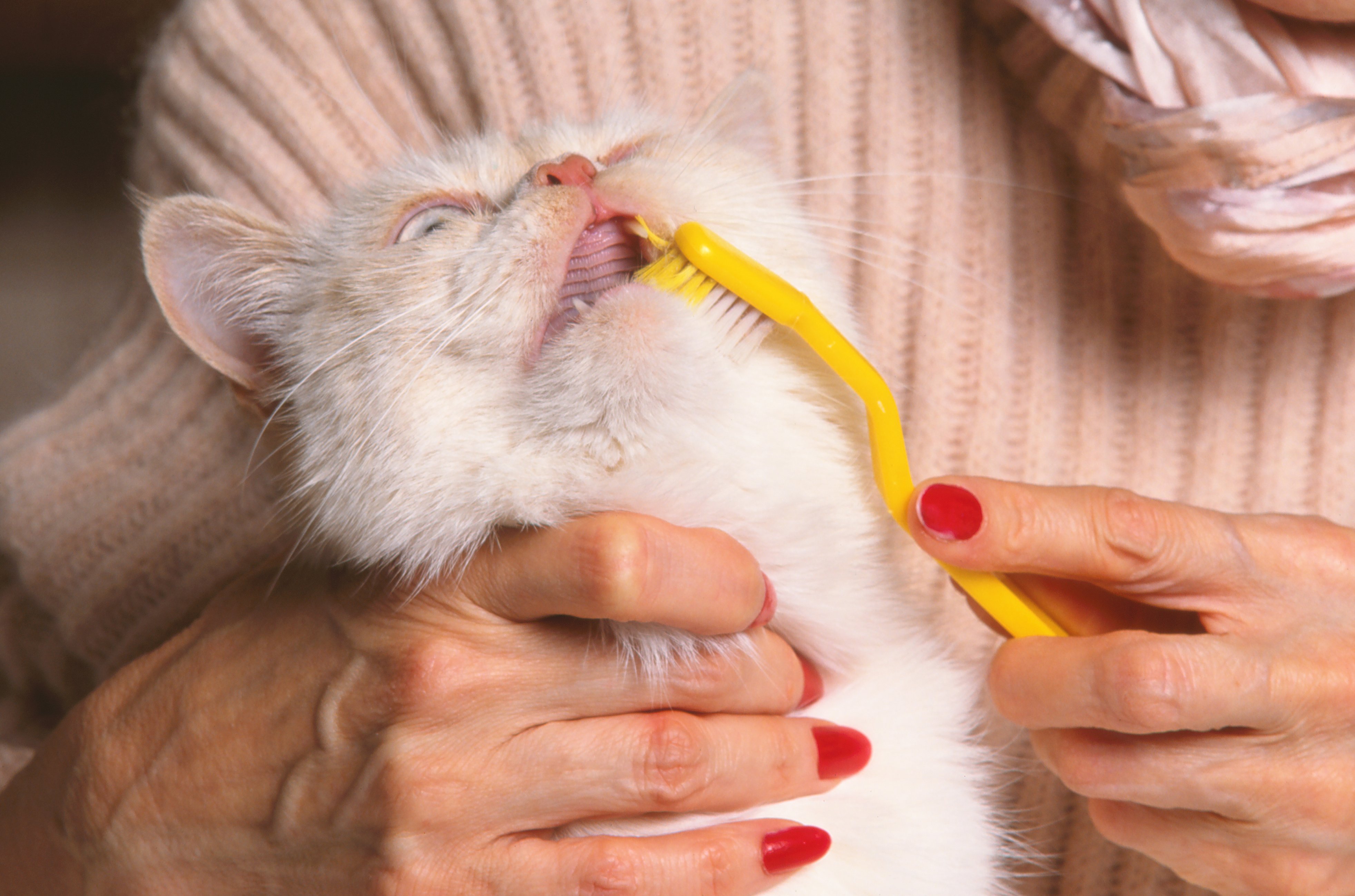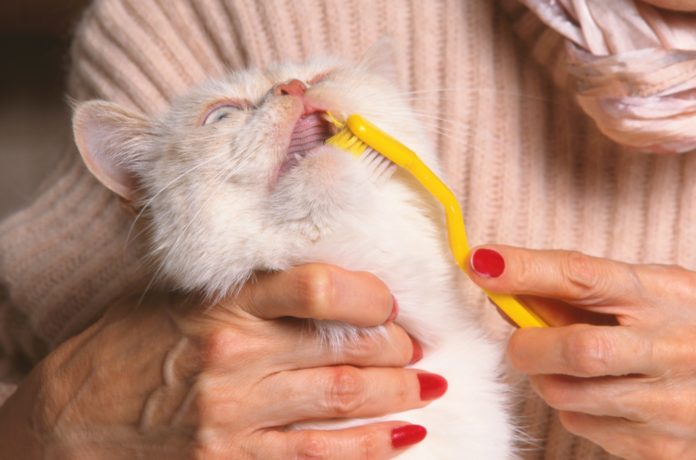
Your beloved cat climbs into your lap, rubs on your chin and then yawns by your face. Suddenly, you are overwhelmed by foul air. It is unreasonable to expect your feline friend to have minty fresh breath, but healthy cat breath really isn’t offensive. Causes for fetid feline breath can range from minor to serious.
On the minor scale, cats who have short faces—think Persians—often sleep with their mouths partly open. Just like people who sleep with an open mouth, their breath can be pretty bad in the morning or after a catnap. There aren’t many solutions to this, but after breakfast, most feline breath problems from this cause will improve.
Teeth First. If your cat has bad breath and is drooling, pawing at the mouth, or avoiding eating or drinking, you should be concerned about a problem in the mouth. Infections of the soft parts of the mouth, cancer, and dental problems can all cause these signs. (See our October 2017 issue.)
A very agreeable cat may allow you to do a quick oral exam—which starts with you raising her upper lip with a finger while drawing down on the lower lip with your thumb so you can see the gums—but often some sedation is required to check thoroughly, including under the tongue. Broken teeth, cavities, and inflamed and infected gums can all contribute to your cat’s bad breath.
Foreign bodies in the mouth, such as strings, yarn, or tinsel under the tongue or sticks lodged in the hard palate, can cause bad breath. These problems may require sedation or general anesthesia to remove, depending upon severity.
Stomatitis (inflammation of the cheeks, gums, lips, palate, and/or tongue) can be caused by an immune problem in cats. In simplest terms, this is an immune response to a cat’s own teeth and/or the bacteria that accumulate on them. Treatment may require either drugs to suppress the immune response and to prevent bacterial infections or removal of most or all of her teeth. Cats with this condition tend to have very bad breath and may drool and be reluctant to eat, often losing weight because of decreased food intake. Home care, including toothbrushing and/or rinsing, can help prevent and treat this condition.
Diseases. There are some systemic diseases that can cause bad breath. On the top of the list is kidney disease, which can cause an almost “urine” or “ammonia” smell to the breath. Most cats with kidney disease show other signs of this disease, including increased thirst and urination, weight loss, and lethargy. (See our August 2017 issue for more information on kidney disease.)
Poorly regulated diabetic cats may accumulate compounds called ketones in their bloodstream, leading to ketotic breath that has a “sickly sweet” tinge to it. This odor is difficult to describe, but any sweetish, unpleasant odor should tip you off to a problem.
Affected cats will most commonly be drinking and urinating more than usual and often lose weight, despite having an increased appetite. Any of these signs should prompt an immediate veterinary visit.
Solutions. What can you do to help combat bad breath in your feline companion? Rule out serious illness and get any dental problems treated and under control. You will need to follow up with regular preventive dental care. A course of antibiotics may be required to get any bacterial infections treated and eliminated.
Breath mints for pets may provide a temporary relief, but daily brushing or rubbing teeth with a gauze and an approved dentifrice is the best preventive measure available.
There is at least one water additive that is approved for cat dental health. Be sure if you choose to use this product that you also put a second bowl of plain water out for your cat.
You may want to consider a dental health diet, although the usefulness of these products is debatable. With a little luck and help from your veterinarian, your cat’s bad breath will be improved and you can go back to enjoying close contact!




